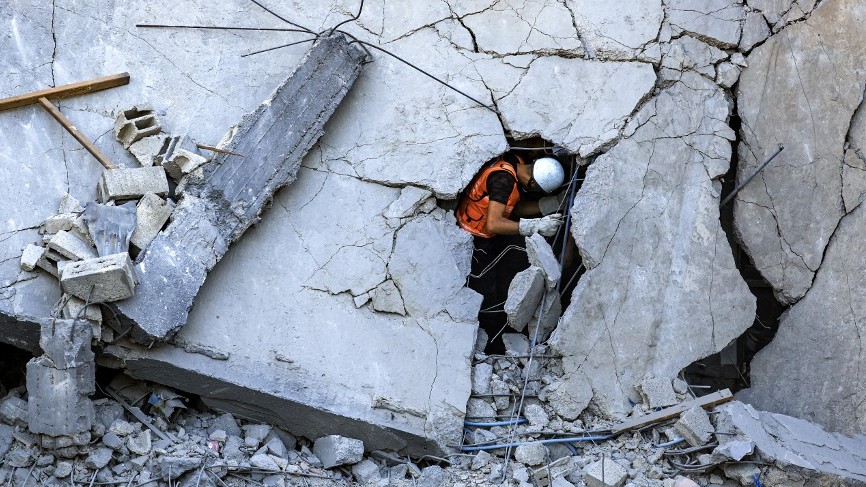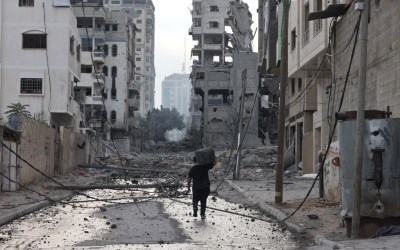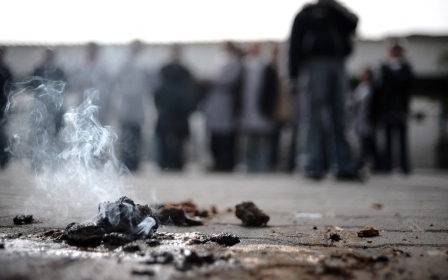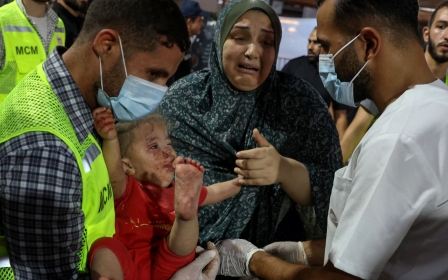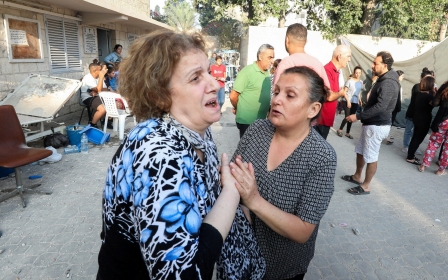Gaza rescuers 'desperate for support' as Israeli air strikes wreak havoc on civilian targets
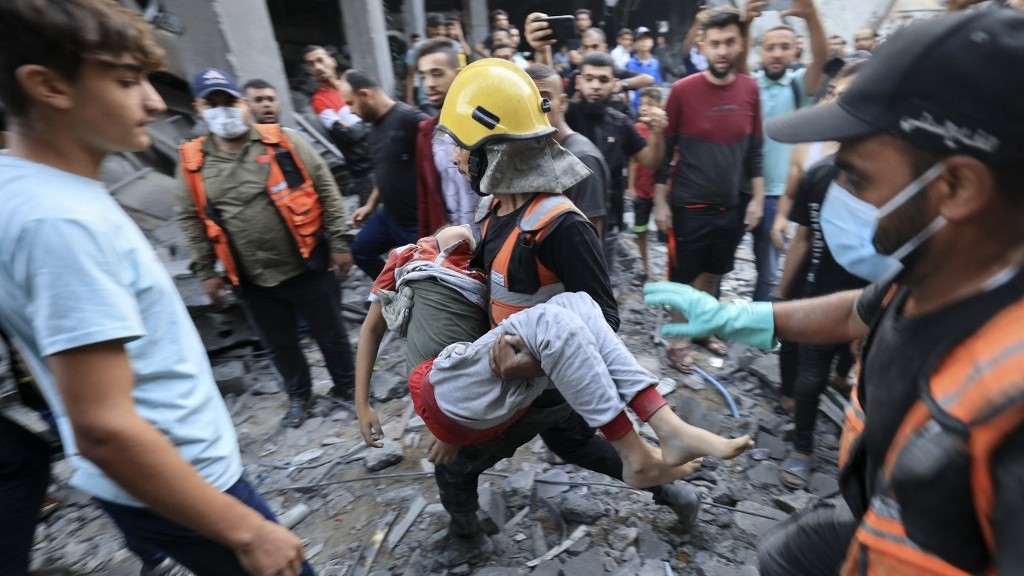
Gaza civil defence workers are sounding the alarm that they are operating to full capacity and are unable to rescue all the wounded or retrieve dead bodies from the rubble of bombed homes as the ferocious Israeli onslaught on the besieged enclave continued for the 15th day.
"The killed people now have to be left under the rubble in order to prioritise the wounded," Noah Lafi, a civil defence worker, told Middle East Eye.
Rescue teams in Gaza are not equipped to recover all dead bodies due to the large-scale nature of the Israeli campaign, which also targeted civil defence and ambulance staff, he said.
Six civil defence workers have been killed by Israeli warplanes, and more than 11 have been wounded over the past two weeks.
"Many of my colleagues lost their families and homes, but they are still carrying out their duty," he added.
New MEE newsletter: Jerusalem Dispatch
Sign up to get the latest insights and analysis on Israel-Palestine, alongside Turkey Unpacked and other MEE newsletters
Lafi is among those who have been wounded as he was hit by an iron skewer and has seven stitches on his hand, but he's still working.
"I have no option but to resist by doing my work," he said
The current Israeli military operation against the Gaza Strip started after the Hamas-led surprise attack on 7 October. At least 1,400 Israelis have been killed since the assault, with more than 200 others taken back to Gaza, including combatants and civilian hostages.
Since then, Israeli air strikes have killed at least 4,385 Palestinians, including 1,756 children, according to the latest tally by the Palestinian health ministry. The attacks have predominantly targeted civilian buildings, including homes, hospitals and places of worship.
Mohamed Fathi Sharir, head of the Safety and Prevention Department at the Civil Defence Directorate, said the situation in the Gaza Strip is worse than the images displayed on television and mobile screens.
"Amidst countless pleas for help in rescuing individuals trapped beneath the debris, our dedicated civil defence, ambulance and rescue teams are tirelessly striving to aid all victims, be they wounded or deceased," he told MEE.
Follow Middle East Eye's live coverage for the latest on the Israel-Palestine war
However, Sharir pointed out that civil defence teams face significant limitations.
"Given the exponential rise in the number of individuals beneath the rubble, our current focus is on prioritising the rescue of the living wounded, even if this postpones the extraction of the deceased from the debris," he added.
Many remain trapped beneath the rubble, he said, necessitating the deployment of heavy machinery for their recovery. The Israeli military's targeting of entire neighbourhoods, leading to their obliteration, exacerbates the crisis, he said.
Sharir emphasised that the Gaza Strip is in urgent need of international aid and rescue teams to assist in recovering both the wounded and deceased.
"Despite the blatant targeting of our branches, our teams continue to operate at full capacity," he said, referring to Israeli air strikes that have hit several civil defence centres across the Gaza Strip.
Fuel crisis
Meanwhile, the shortage of fuel as a result of the Israeli blockade has severely complicated rescue efforts.
According to Major Mahmoud Basal, the official spokesman for the Gaza Civil Defence, Israel's latest total disruption of electricity and fuel supplies has taken a heavy toll on their work, as their essential equipment relies on these resources for operation.
"The critical shortage of fuel poses an imminent disaster as our operations heavily depend on it," he said.
Moreover, they do not have enough resources to cope with the scale of devastation caused by the air strikes.
"We are facing a shortage of equipment to manage the substantial volume of debris and rubble resulting from the bombing of entire residential areas," he told MEE.
"There will be a point when we won't have ambulances or civil defence vehicles available to respond to the areas affected by bombings," he said, adding that civil defence vehicles in Gaza are outdated models from 1988 and 1994, and themselves need replacement.
"Regrettably, we have been appealing to international organisations for years to come to our aid, but our pleas have largely gone unanswered," Basal said.
"We are committed to delivering the best possible services to our citizens, but the Civil Defence in the Gaza Strip needs another civil defence. It is in desperate need of support. All our vehicles and equipment are in a state of disrepair."
Amer Abu Saif belongs to one of of several Palestinian families whose homes were bombed in Israeli air strikes on the Jablia refugee camp in northern Gaza on Thursday.
"Our house in Jabalia camp was targeted at 1am. There were more than 15 people in our house, including displaced individuals seeking safety," he told Middle East Eye.
While Abu Saif survived the air strikes, at least 18 Palestinians were killed in the attack.
Abu Saif said that while nine people have been found dead since the attack, eight more remain trapped under the rubble as rescue efforts by a local civil defence team have failed to recover their bodies due to the extensive destruction left by the bombing of four residential buildings.
"Even if they are in pieces beneath the rubble, we need to reach them for a proper burial," he said. "We have been deprived of the chance to bid them farewell."
*Additional reporting by Mohammed al-Hajjar.
Middle East Eye delivers independent and unrivalled coverage and analysis of the Middle East, North Africa and beyond. To learn more about republishing this content and the associated fees, please fill out this form. More about MEE can be found here.


